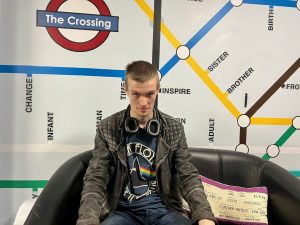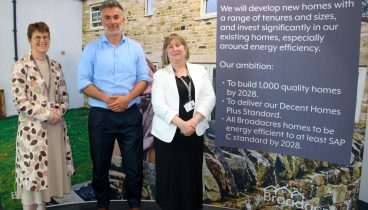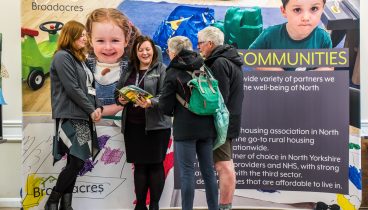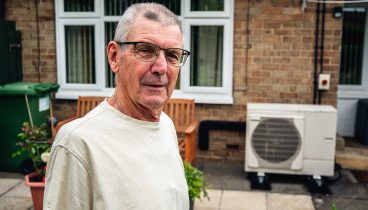 Neurodiversity Celebration Week is a worldwide initiative that challenges stereotypes and misconceptions about neurological differences.
Neurodiversity Celebration Week is a worldwide initiative that challenges stereotypes and misconceptions about neurological differences.
At The Crossing, Broadacres’s supported housing scheme for young people who are homeless, or at risk of becoming homeless, we have several young people who are neurodivergent.
One person is Dakota.
Dakota came to The Crossing in August 2023 after spending a year “couch surfing” following a family breakdown.
Dakota has Asperger’s, a form of autism and related physical health problems, particularly relating to her muscles.
She explains: “My muscles are not wired up properly so I find it difficult to walk or sit correctly and often it gets so bad I can’t move at all.”
Dakota has always been independent but before moving her into her self-contained Broadacres’ flat (which we had adapted to meet her physical needs) she had never done things like shopping or cooking for herself.
With the help of The Crossing Support Worker Claire Evans, we have helped her to gain these important life skills, even though due to her autism she struggles in social places such as shops.
Dakota says: “My life started to go downhill after I dropped out of college whilst doing my A-Levels and following my family breakdown.
“I was like a zombie when I first came to The Crossing. I couldn’t do anything and could barely talk, but since then I have done a complete 180-degree turn.
“One of the first things Claire suggested was that I do a Princes Trust course which I completed, and I wouldn’t have had the opportunity to do that without the support of Broadacres.
“I am now looking into the possibility of going to university and doing a course in Asian studies, which is an area that really interests me.
“I have learned a lot in such a short space of time, and I feel things are slotting into place for me.”
Discussing her neurodiversity, Dakota adds: “Many people don’t realise how physically damaging autism can be, in addition to the mental issues.
“It can restrict your daily life and mean you can’t do things which others take for granted, for example, I am unable to tie my own shoelaces.
“Autism often gets over-simplified and made into a trend so it’s important to listen to people who are autistic and how it affects them because everyone is different.”
Another one of our neurodivergent young people is Harvey.
Harvey has autism, ADHD and is hypermobile, which means he gets pain and stiffness from having very flexible joints.
He struggled during his school years due to his perceived behaviour, which means he has never had any real stability in his life.
He explains: “I have always been very physical active. I can’t sit still and quite literally find myself running around the walls, which has caused me problems during my life.”
Like Dakota, Harvey was referred to The Crossing following a family breakdown.
In his case, Harvey lives in one of the flats in our purpose-built accommodation in Northallerton, where he has been encouraged to become more independent.
He is now undertaking a digital media course at college which he says he loves and at The Crossing has become good friends with another young person we are supporting, Lee.
“I was a bit reticent at first, but I am living fully independently now and having fun with it,” he says.
Discussing his neurodiversity, Harvey simply says: “You have to accept it because it’s something you can’t change, the key is making people understand that we are all different.”




Share on:
Share Tweet